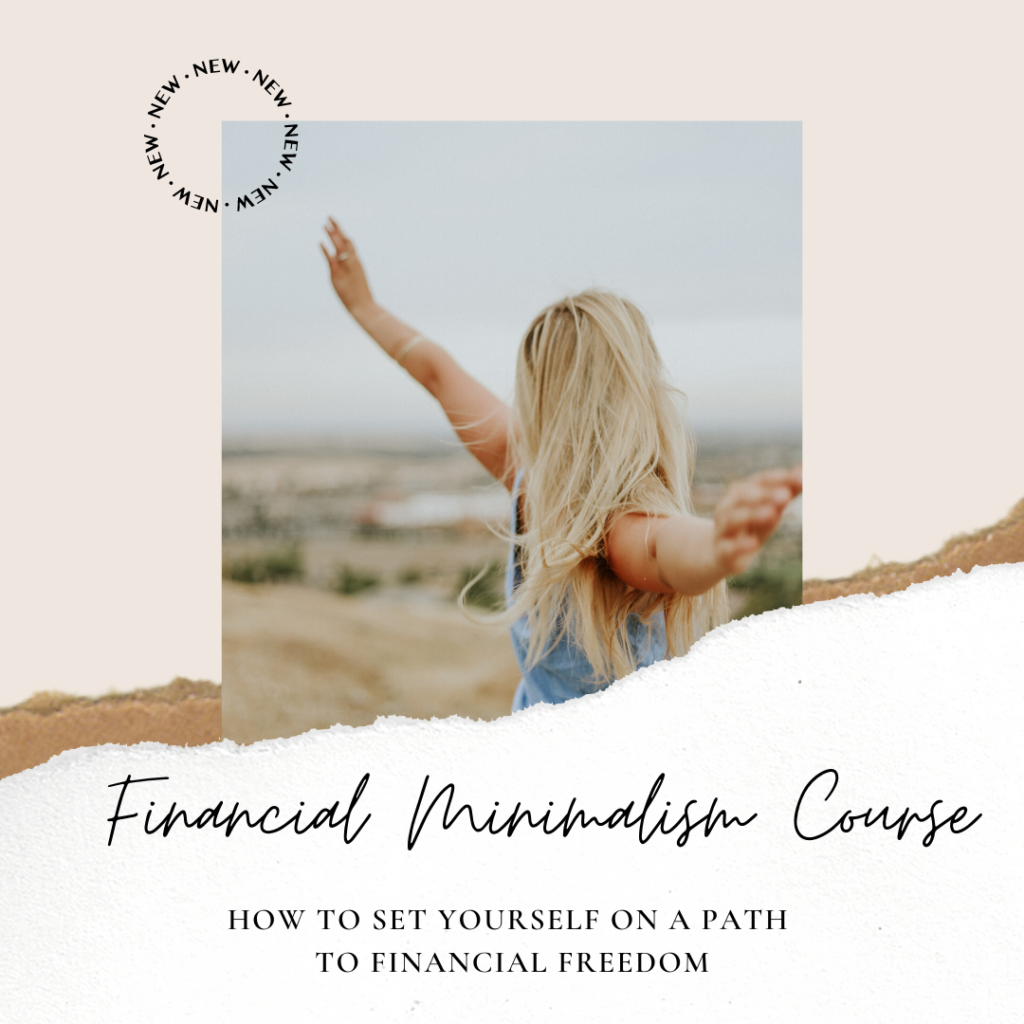Over the past few years I have been on a financial knowledge binge learning and absorbing as much financial information as I can. I can’t say I was raised with a wealth of financial knowledge passed down to me but I did take in as much as I could from those around me.
A lot of what I observed around me was more not what to do with money than what to do, which can often be just as valuable.
Ten of the Best Money Advice I’ve Ever Received
Some are from friends and family, and others from some financial experts I look up to.
**This post contains affiliate links. If you make a purchase of a product from the links in this post I will receive a small commission, at no cost to you. This allows me to keep my blog advertisement free and support the running costs of my blog. I only recommend products I believe will add value to others and that I love myself.**
- Use an offset account for your savings to save on your mortgage – An old friend
When I was about 24 and looking to buy my first home, a friend was kind enough to share some of his financial wisdom with me, which was always welcome! He told me to make sure when I got a mortgage I utilised an offset account so I could reduce the interest paid on my mortgage with my wage and any other cash I had. You can read more about how to do this here.
It was one of the best money advice I’d ever received when I was hitting my adulting years and something that has saved me potentially tens of thousands in mortgage interests!
Related reading: 14 Things You Should Know Before Buying Your First Home
- Pay yourself first – The Richest Man in Babylon, George S Clayson
I can’t remember who recommended I read The Richest Man in Babylon but I found it interesting to see sound financial tips that have stood the test of time, this book being released all the way back in 1926. One of my biggest takes from the book was to pay yourself first! As in set aside savings before you have paid $1 to debt or bills.
If you leave savings as a last priority, it will be your last priority. George S Clayson mentions via parables set in Ancient Babylon the importance of saving 10% of every pay cheque a habit I have kept to this day. And once you get the hang of it, it’ll become second nature.
- Save up an Emergency Fund of 3-6 months of expenses – Dave Ramsey.
In Dave Ramsey’s book The Total Money Makeover Ramsey describes the 7 baby steps. This one refers to Baby Step Three, once you are consumer debt free you need to save an Emergency Fund of 3 – 6 months of expenses. When you have 3-6 months of expenses saved you give yourself a financial buffer and breathing room. If you lost your job tomorrow how long could you survive for until you found another job? Giving yourself at least three months allows you to cover yourself for the most unexpected situations like redundancy or illness and also gives you the opportunity to leave a toxic job you hate. Be kind to yourself, take note of the best money advice from Mr Ramsey & give future you options by saving up a minimum of three months of expenses.
Related reading: Dave Ramsey Financial Guidelines to Live By
- Only insure things that can financially destroy you: your car, your home and contents, health, your life, Scott Pape – The Barefoot Investor
This is one of those questions that no one seems to know the answer to, so I was thrilled when Scott Pape answered it in a matter of words in his book The Barefoot Investor. Pape suggests that you should only spend money to insure things that can financially destroy you. The phone insurance or extended warranty on that TV don’t make the cut. Spend your hard earned dollars where it counts – private health insurance, permanent disablement and death and income protection insurance.
- Don’t put Yourself on Sale – Women and Money by Suze Orman
I recently read Women and Money by Suze Orman where she raises the issue of women being too afraid to ask for what they are worth. Orman says to know your worth and not be afraid to ask for it. Whether it be the raise your deserve from your boss or the price your client should be paying for your skill. Don’t sell yourself short. If you deserve a raise, ask for it and if you don’t get what you feel you should, be willing to go elsewhere.
- Pay off your mortgage before you retire – both my Grandmothers
I didn’t have much financially savvy family to sponge ideas from growing up, but both my Grandmother’s paid off their homes before retirement. I remember my Grandmother telling me how hard she worked and made sure every dollar she could put at the mortgage she did. It meant that by their 60s they were mortgage free and didn’t have to worry about a huge expense in retirement. Definitely the best money advice I have gotten from family over the years and one I will certainly keep in the forefront of my mind ;):)
Related Post: 13 Realistic Ways to Pay Off Your Mortgage Faster
- Say no to debt other than a mortgage – The Minimalists
I discovered The Minimalist and their podcast about few years ago now and consumed everything I possibly could of their material. Once recurring piece of advice from Josh & Ryan is to stay out of debt other than your home.
When you are debt free you keep yourself free to make decisions for you. It could be the freedom to move interstate, cut back hours or take a lower paying job that gives you more purpose than your current one does. The best money advice is always to avoid debt, especially bad debt on things that don’t have a return like going into debt for holidays or shopping sprees.
- Plan ahead for savings like weddings and a house – I Will Teach You To Be Rich, by Remit Sethi
Remit has a whole chapter in his book I Will Teach You to Be Rich that details how to plan and save ahead for those big ticket items in life like cars, your first home and weddings. He suggests that most people should start saving from their early 20s for a wedding, particularly if you strongly believe you will get married one day. Planning a Debt free wedding is possible and the sooner you start the better! Same goes for your first home. Please take the best money advice Remit has offered, (and take it from someone who only had 19 months to save for a wedding and month long honeymoon in Europe!) Don’t leave these huge financial undertaking for 30 year old you. Time is your friend so get started today.
- Millionaire’s don’t always live like Millionaire’s – The Millionaire Next Door, by Thomas J. Stanley and William D. Danko
Reading The Millionaire Next Door was a window into the life of your everyday millionaire. Here you won’t see any mansions, or sports cars or tennis courts. This books shows how you can maintain a comfortable lifestyle without having to spend like you’re the next Kim Kardashian and to manage your wealth sustainably so it outlives you. If anything the millionaire’s interviewed in this books showed a different perspective to what most things millionaire’s are and show that you don’t have to scream ‘I’m Rich’ to the world in order to be wealthy.
- Spend some on things you enjoy – Mr Minimise With Me
I was somewhat financially independent at the age of 15. My single mother put a roof over my head and food in the fridge, paid for my medical needs and utility bills but other than that I had to pay my own way. It wasn’t an ideal situation but I made it work and got myself a job as a checkout operator at 15 to cover my own expenses and spending.
As a natural saver, and someone who often though ‘how many hours did I have to work for this’, at a young age I was very reluctant to spend any money on non-essentials no matter how much value something would add to my life.
Despite having more than enough saved up, I was reluctant to spend $500 on a new guitar that I needed for my HSC music exams at the time. My Mum had bought me a beginner guitar two years earlier which I played nearly every day but I still did not see the value in parting with my money. I ended up finally buying a new guitar a few weeks out from the end of year 12 but it was the perfect example of something I should have just bought when I needed it at the beginning of the year rather than depriving myself just because.
It was a valuable lesson and made me realise that not every dollar should be saved. If you struggle with this as well, it’s a good reminder to know that it is okay to spend on yourself occasionally when you can afford to do so. Life isn’t meant to be about endless deprivation. And you can’t enjoy money when it’s just locked away in a bank account indefinitely. Money is a tool to be utilised.
It took a while, but my husband has helped me to see that it is okay to spend money on things that add value to my life. I now value travel and experiences and don’t get so caught up in the savings side of things that I miss out on somethings I want or enjoy 🙂
The best money advice is usually some nugget of wisdom on how to save faster or pay off debt faster but I think advice on how to learn to enjoy your money is also as important and helps sticking to a budget or paying off debt over the long haul more likely to happen if you get some to enjoy too!
[Photo: Sam Truong Dan @ unsplash.com]
This weeks question: What is the best piece of financial advice you’ve ever received? Let me know in the comments below! 🙂
If you found value in this post I would be super appreciative if you could share it with others who might also find value in it 🙂
![]()


